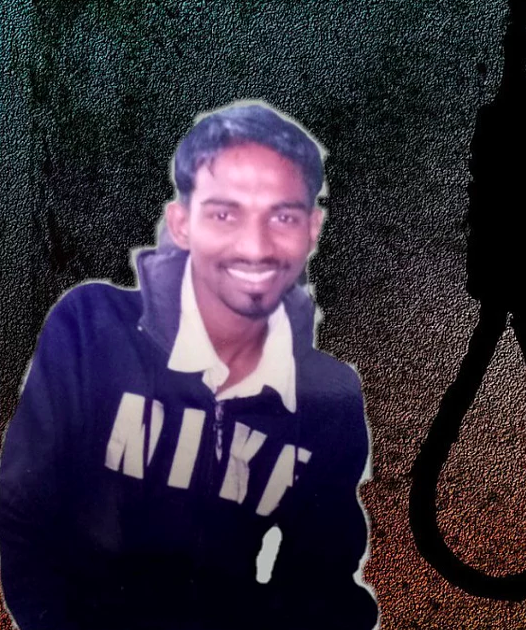On October 10, Malay Mail published a letter to Singapore’s President Halimah Yacob from Pannir Selvam Pranthanam, a Malaysian national on death row for drug trafficking.
The family of Mr Pannir told the publication that the letter had been written on November 7 “on scraps of paper in prison” images of which can be found here.
In August, a letter he had written was also released on local media, explaining what life is like as a death-row convict, and thanking his family for standing by him.
Originally from Ipoh, Mr Pannir had worked as a security guard in Singapore. The court sentenced him to the death penalty after he was convicted as a drug courier in 2017.
Earlier this year, after his family worked to get information on drug mule recruiters, they sent their information to the Attorney-General in Singapore and sought for a substantive assistance certificate for Mr. Pannir. It meant he would receive caning and a life sentence in lieu of the death sentence.
On May 17, his family received letters informing them of the denial of his appeal for clemency, and that his execution date was set for May 24.
On May 21, Mr Pannir applied for a clemency challenge and to defer his execution.
On May 23, the day before he was scheduled for execution, the Court of Appeal suspended the execution.
In his November 2018 letter, Mr Pannir wrote of his realization of the damage drug abuse does not only on an individual level, but to ‘humanity.’
“When I was in prison, I realized the harm and destruction drug abuse causes to families, communities, society and humanity as whole. I’ve failed to realise this truth in the years of my freedom, and had only gained this realisation when I was within a cell of 4 brick-walls for 4 years. I understand now, that nothing triumphs and matters more than the value of a life and living, love, family, freedom, moral and civic responsibility as human beings.
I have learned that even in our most dire situation, we can still reach out to others, to ease their burden and lift them up so that they will be comforted with the fact that they are not alone in their sufferings and struggles that they face. We must offer help to the broken, and offer hope to the hopeless.”
He wrote to the President that if death row inmates were given a chance they would pass on the insights they learned to the younger generations “so that we could all stand united together with them against the abuse and misuse of drugs.”
He even suggested different channels through an audience could be reached, and what positive impact this would make on society.
“We can write every week if we were given a small column in the newspaper, and also reach out to other various outlets such as radio, live interviews, TV, and social media. By our hands, we can disrupt the demand for drugs and remedy the cycle of addiction.
These efforts could begin in prison as well. We could conduct blood donation campaigns involving the inmates. This will be surely provide a boost of positive energy to everyone, especially us inmates, as we begin to realise that we, despite of our current circumstances, are able to still contribute back to our society. We would gain a sense of responsibility towards our fellow men and society. Most of the time, many inmates, such as me, feel nothing but dread and hopelessness, which turns us back to our old, damaging habits but by positively influencing the inmates, we go through a character rehabilitation and at the same time are able to save lives.”
Mr Pannir also quoted Senior Minister of State for Trade and Industry, Dr. Koh Poh Koon, who said, “By hearing more personalised stories, I think it can help us understand how we can mitigate some of the circumstances where some people seem to fall through the cracks and then on, craft ways in which we can also help to lift them up.”
The convict expressed his sorrow for his past offense.
I feel ashamed and I deeply apologise for my lack of self-awareness, moral and public responsibility. I take this final opportunity to express my utmost regret and I beg your Excellency to be merciful and compassionate and spare my life by commuting my sentence of death to one of life imprisonment.
I shall be grateful forever, in thought and action. –/TISG
Read related: Malaysian convict writes about life on death row in Singapore

